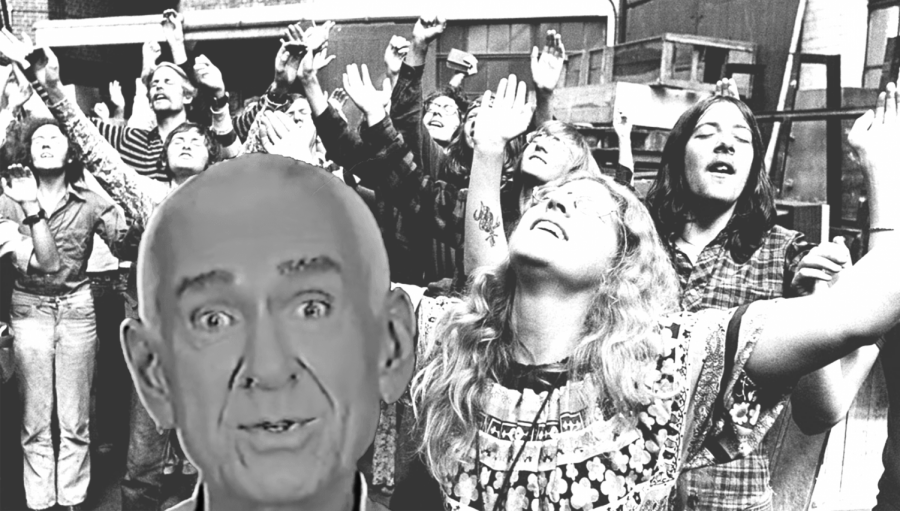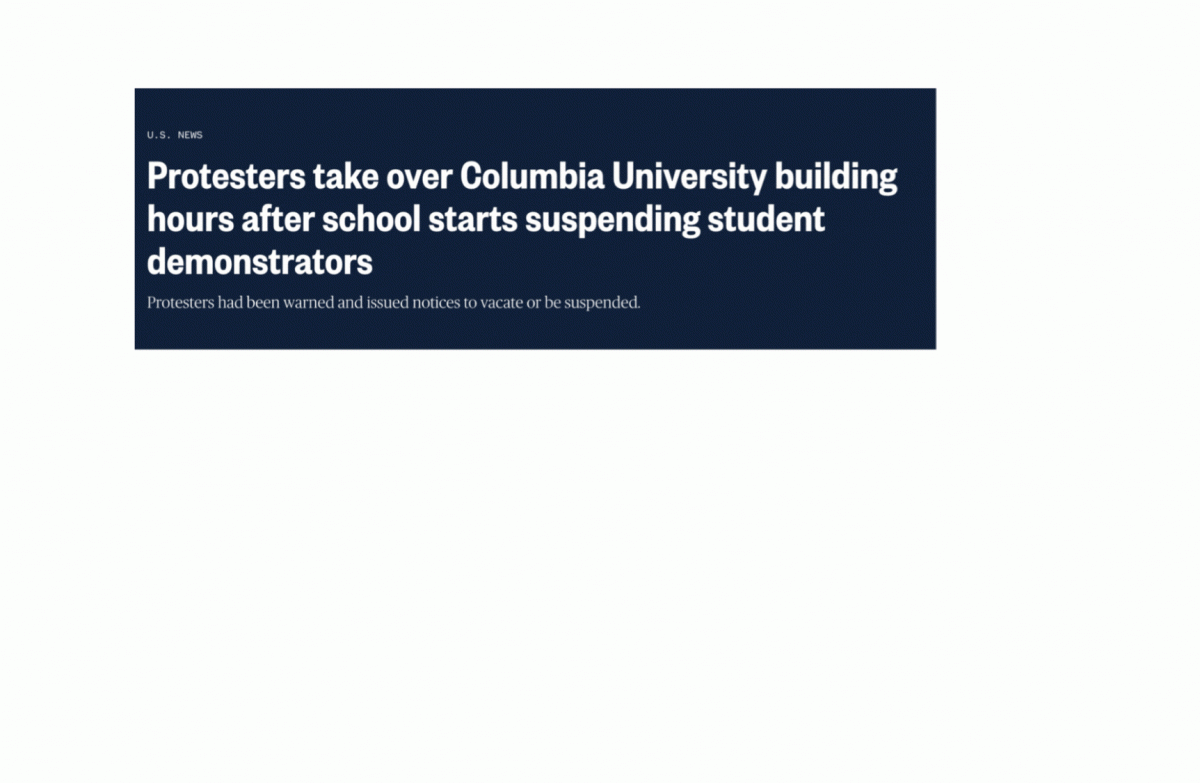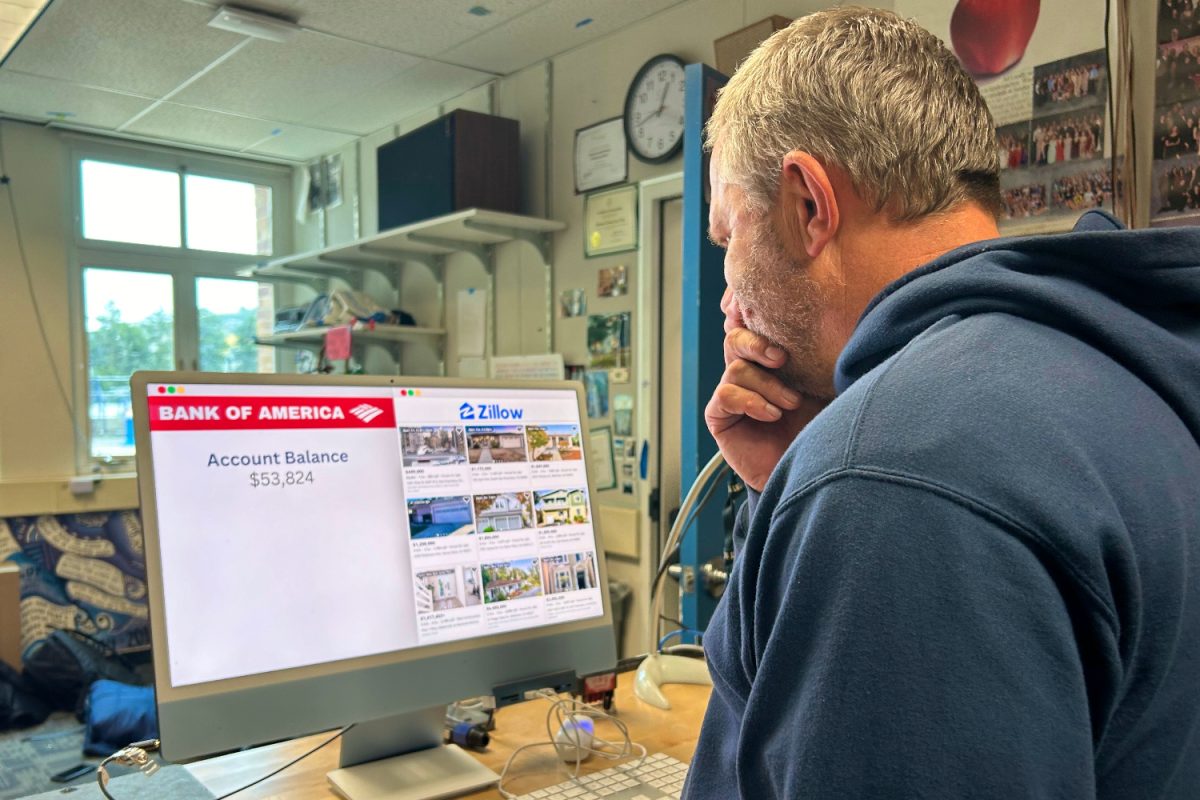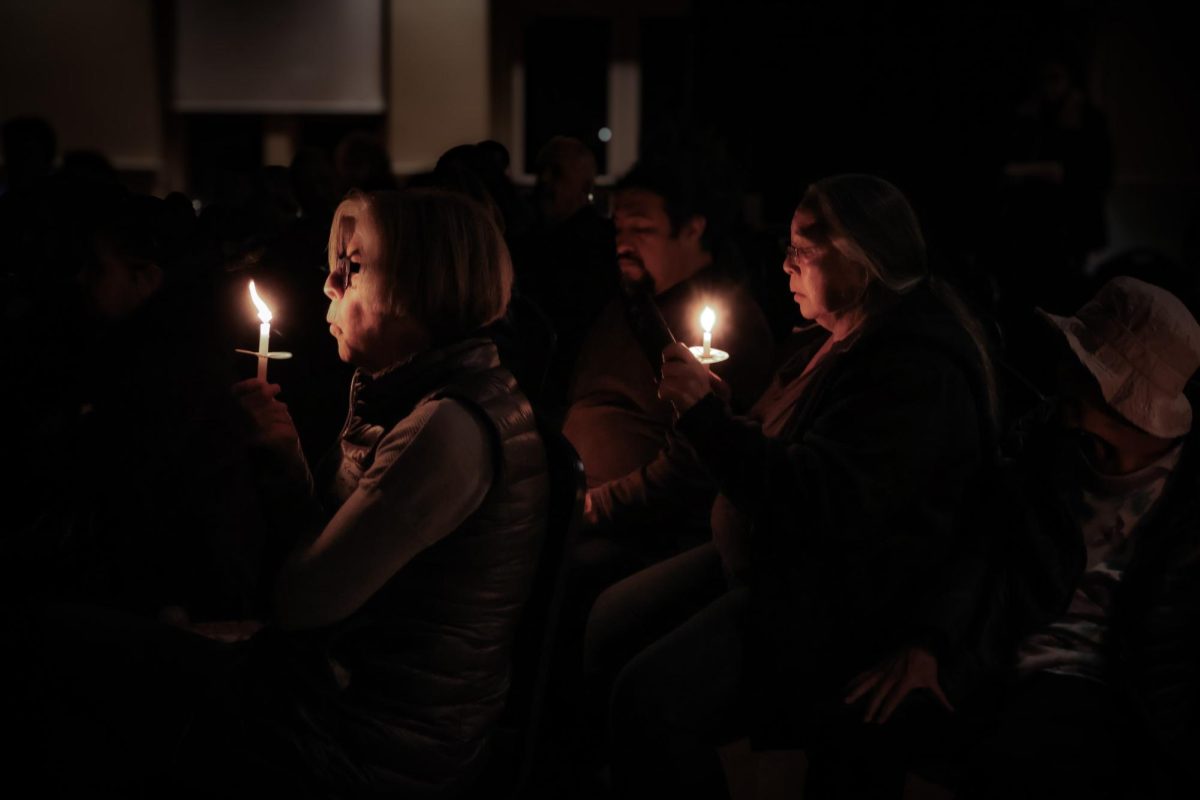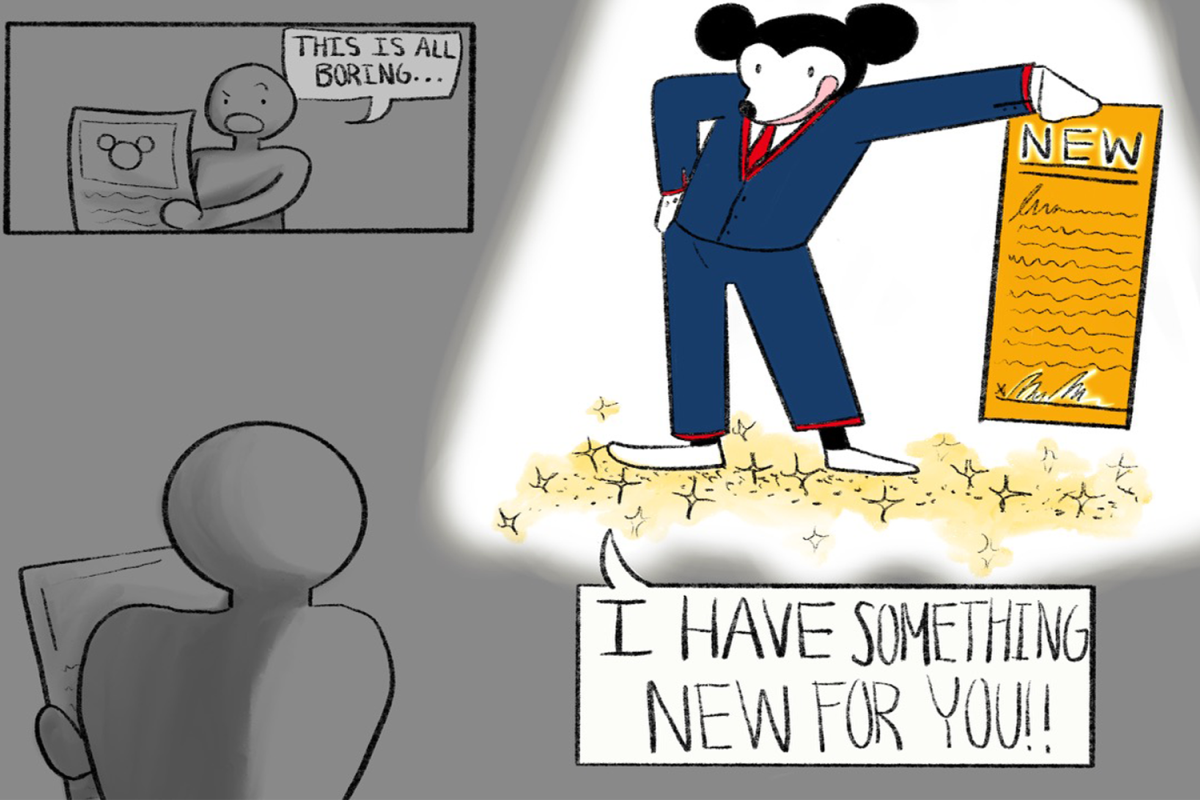A woman gives you a flower at the airport. It seems like a nice gesture, but she’s trying to recruit you to the Hare Krishna group.
A man arrives in your small town preaching on the topic of UFOs. It’s a joke until, one day, 150 people leave town to join the cult, Heaven’s Gate.
You join an executive success program to better your business skills— little do you know it’s actually the sex cult, Nexium.
The entire idea of cults almost seems unbelievable, but the reality is that they’re not all as far off as we think.
“The biggest surprise for people who are investing in this field is the belief that it could never happen to me,” Ron Burks said. Burks is a therapist specializing in cults. “And when you start digging into this, you end up meeting people that are just as smart as you, just as cynical as you, just as careful about checking things as you, and then you find out they were in a cult for 20 years.”
Drink the Kool-Aid
The famous and degrading phrase "drink the Kool-Aid," coined from the vile Jonestown massacre, means to completely buy into an idea or system, whether it be good or bad. In 1978, the cult The People's Temple suffered a "mass suicide" under the leadership of Jim Jones. Jones urged his people to commit suicide by taking his cyanide-laced flavor-aid to make a political point. More than 900 individuals died that day, making it the largest single loss of U.S. citizens in a deliberate act before 9/11.
It doesn't seem to make sense how one person could get more than 900 people to take their own life or how he could even get those people to join a group so controlling and abusive as Jim Jones'. It feels like the only possible answer is that these people just weren't the brightest, but cult specialist Bill Goldberg would say otherwise.
"Very few people who are in cults are really so gullible and so dumb that they would fall for anything. They're regular people who were at the wrong place at the wrong time… [and] were manipulated by someone or a group that used very sophisticated techniques to get people to give up their previous beliefs and to come over to the group," Goldberg said.
This misconception creates a danger to society. People often believe themselves to be smart enough to be protected, but in reality, it has little to do with intelligence.
"People think that they're going to be obvious, but it's really not. Cults will use a lot of front organizations to get people in. You can go into a classroom and not know you're in a cult. You can go into a yoga studio and not know you're in a cult," said Rachel Bernstein, a therapist and host of the podcast IndoctriNation.
Most people who join cults aren't joining "cults." They're joining a group of people who can provide something they feel they may lack: love, attention, knowledge, etc. Often, cults go about different marketing strategies to bring in new members, targeting their needs.
One such marketing strategy is called love-bombing, a term coined by the cult Unification Church of the United States. Love-bombing is flattering a specific person with enough affection and attention to control and influence their behavior. This showering of love manipulates people into feeling indebted to someone or something.
Another way that cults recruit new members is through isolation. In cults, people often become so close that the cult replaces their families and friends, isolating individuals from the outside world.
Cultic Studies by Erin Kee
"They tell their new recruits that their old ways of living aren't working for them, and their parents or friends or employers or whoever are trying to manipulate you and use you. You shouldn't listen to them anymore," Goldberg said. "So they encourage the new cult members not to tell the family what they're involved in and to be very vague about it."
Cults also use a sense of superiority or scarcity to market themselves. They claim to be the only ones "having the answer."
"'This is the only path, the true way, and everything else is false.' They get people to come and stay because people start to believe the message that they shouldn't bother going anywhere else because they'd be wasting their time," Bernstein said.
While these marketing strategies aren't all the ways cults bring people in, not all groups that use these strategies are cults. These strategies can only affect people for so long, but by the time they wake up to reality, it's too late.
"It's like being in a bad relationship," Burks said. "You think you're having the best that it can be, so the bad part you skim over because it's not that bad. It'll take a while before you just realize you need to go."
One such group that uses these tactics is the conspiracy cult QAnon. In recent months, the group has grown enormously with increased time spent on the internet due to the coronavirus pandemic. According to The Guardian, QAnon pages, groups, and accounts have gained more than 4.5 million aggregate followers.
What was once just a fringe conspiracy theory has grown into a large-scale political movement. The main belief of QAnon is that a cabal of Satan-worshipping pedophiles has been controlling the “deep state” government, which supposedly seeks to undermine President Trump with the aid of the media. In May 2019, the FBI identified QAnon as a potential domestic terrorism threat. Despite this, QAnon-supporting candidates have been winning congressional primaries.
The actions of QAnon have demonstrated the potential harm that a cult can do to not only the members of the cult but the society around them. QAnon’s growing popularity and involvement in politics could have a large impact on the 2020 election and the nation.
Freedom of Mind
Throughout American history, the line between a cult and a religion has grown blurry. The word cult itself has become a controversial title. Bernstein makes the distinction from the way that they're run.
"What differentiates a cult from religion is when you're involved in a cult, you're involved in an organization that typically runs on its own. It's a renegade organization. So unlike larger religions where there's usually a governing body and an ethics department… there's no protection like that within a cult," Bernstein said.
While many have made distinctions between cults and religions, Guy P. Harrison argues that there is no difference; one title is just more offensive than the other. Tracing back the effects of what society labels as cults and religions, both are dangerous. This can be seen in the Jonestown massacre, The Crusades, Taiping Rebellion, Heaven's Gate, and many other events.
"This is verbalized bullying that demeans less popular groups and distances them from more popular groups. Labeling a group a cult is a cowardly way of tolerating, condoning, appeasing, or promoting favored religions while simultaneously rejecting and disparaging a minority religion," Harrison said.
I believe in freedom of religion, but I also believe in freedom of the mind, and I think because of the techniques that are used to get people into cults, it's a different kind of category.
— Bill Goldberg
This disagreement of distinctions makes it unclear what certain groups of people can be categorized as and how this affects society. Goldberg suggests it has more to do with the individual than the group.
"The line between a religion and a cult... it's less relevant than the idea of what's happening to this individual. Is this an individual who's given up all of his or her ambitions, who refuses to speak to anyone that's not in the cult? Have they become slavish in terms of their relationship with the cult leader so that they don't have free will? If that happens to somebody, then I would say for them, this group is a cult," Goldberg said.
Cults' practices may not interfere with the first amendment, but some believe it interferes with basic human morality.
"Sometimes the cults will portray people like me as anti-religious bigots, and that's just not true," Goldberg said. "I think it's the people who fight cults that are trying to open people's minds. Freedom of religion has nothing to do with somebody being manipulated."


